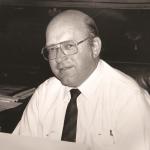
2026 Lecomte Stakes at a Glance

Imagine a community where those who do not fit the mold of society find solace; one where both people and horses who are undervalued come into their own and thrive. This place is summed up in three words—Square Peg Foundation.
Founded in 2004 in the San Francisco Bay Area by the wife and husband team of Joell and Christopher Dunlap, the aftercare organization was created with a very specific goal in mind.
“We called it Square Peg because we saw there was a big need for horses that weren’t going to fit in a traditional riding program and horses that needed to be pasture pets, and also people that weren’t going to fit in a traditional riding program and also weren’t going to fit in a therapeutic riding program,” Joell Dunlap said.
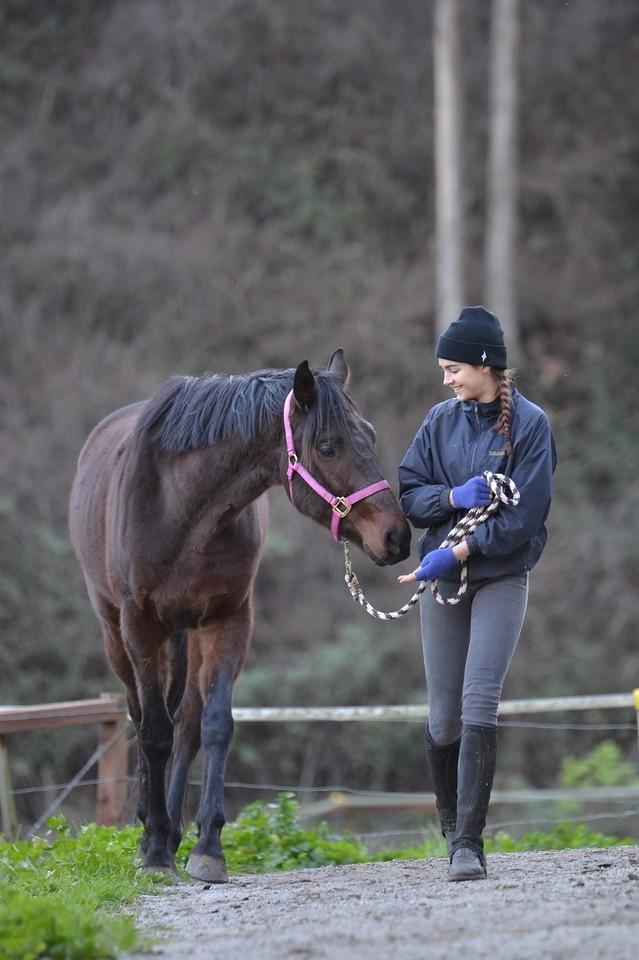
Joell, who has an extensive background working on the track in both riding and managerial positions, recognized the gap left behind when horses finished their careers or just could not cut it as a racehorse, and she knew she wanted to do something about it.
What began as a sort of side hustle while still working on the track—retraining Thoroughbreds for second careers—turned into a calling that Dunlap could not ignore. She says that the creation of the organization coincided with finding the autism community in Northern California.
“I just felt like we owed something to those horses that we asked everything of and who gave us everything,” Dunlap said. “I think it was a really natural marriage to think of people who society didn’t think had value either. Or people who didn’t fit in...who were outsiders so to speak.
“It really became this defining thing about if you can illustrate to people that all life has value and you can invite people to help and care for these animals and show that they have value, then you’re helping people who doubted their own value see themselves differently.”
Since getting its start 19 years ago, Square Peg now holds two different locations including farms in Half Moon Bay and Sonoma. Between the two facilities, they have 25 horses, 17 of which are Thoroughbreds. The organization employs six full-time workers, six part-time workers, and has eight interns in a job training program for adults with autism.
“Autism is a lifelong challenge, and some people have higher support needs and they will have those support needs throughout their life. It doesn’t go away,” Dunlap said. “When people go into autism work, everyone wants to work with kids, kids are cute and fun and it’s really gratifying. But someone’s going to be an autistic adult a lot longer than they’re going to be an autistic child.”
Dunlap says that over the years she noticed the dwindling opportunities for autistic adults as they aged out of support services. Observing these difficulties inspired her to create her own program at Square Peg.
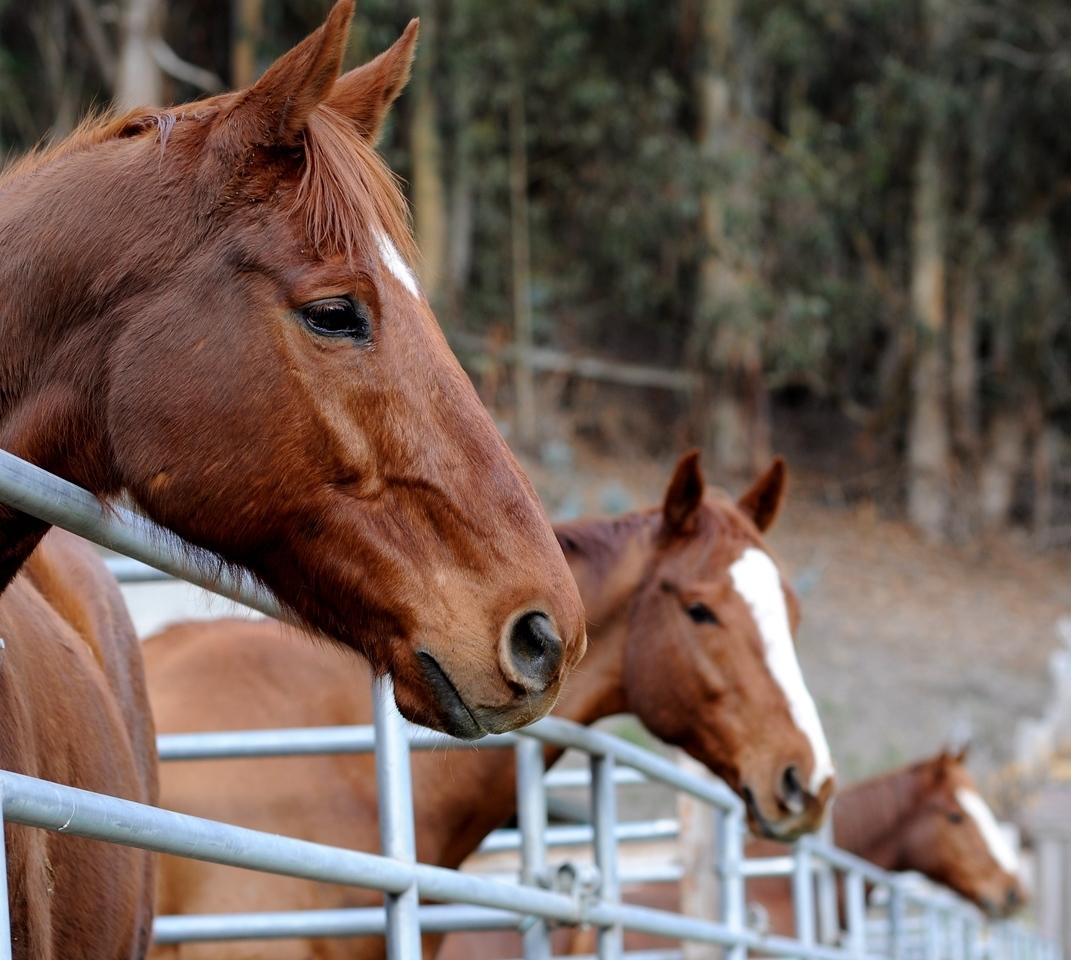
“Right now, we have eight people on payroll with autism,” Dunlap said. “Some of them with pretty significant support needs...They are helping us care for the animals and they are getting physical exercise and social opportunities to work with other people. And they supervise our volunteers.
“If somebody comes and wants to be a volunteer at Square Peg, your supervisor may be somebody that you would never have known otherwise because this is somebody with autism. That’s something that was unexpected, I never sought out to be in the job training field but it’s really profound to see (the changes in) people’s lives and people’s ideas and what they’re capable of.”
Along with supporting autistic adults through the job training program, Square Peg manages to serve around 75 families a week as well as providing support for local inpatient eating disorder programs and mental health services for people with severe trauma.
Most of Square Peg’s horses come from the California Retirement Management Account (CARMA) which is an organization that “provides funding for the rehabilitation, retraining and/or retirement of California-raced Thoroughbred horses.”
“We work almost exclusively with California’s CARMA program,” Dunlap said. “We have such a great trust relationship particularly with their executive director, Lucinda Lovitt. She knows what we want, what our capabilities are, what our facilities are.”
Dunlap says that they rarely adopt out their horses and that more often than not, it is the organization’s own volunteers who end up taking the horses home.
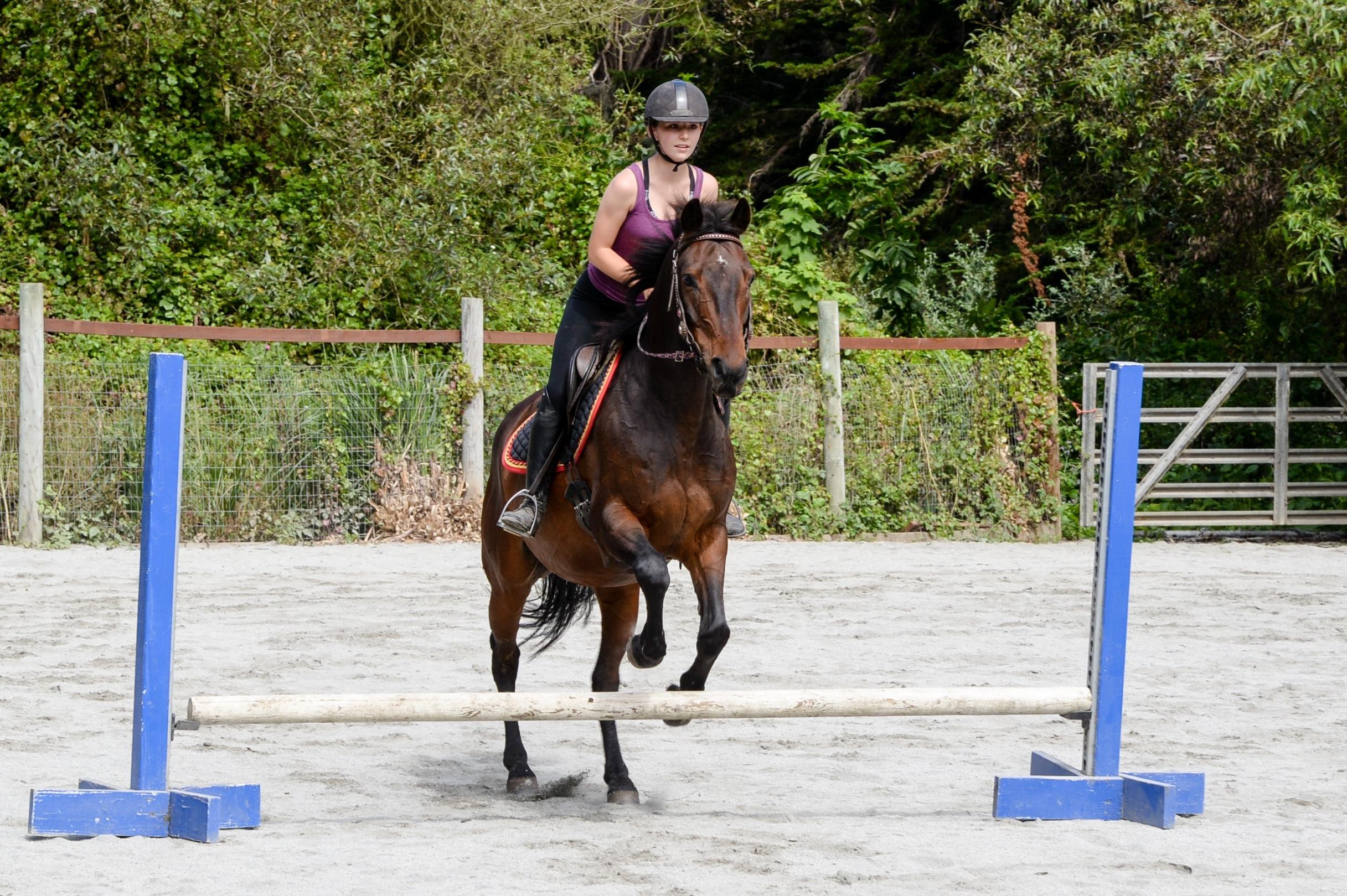
“I think we sent three horses off to college after COVID. We had these amazing young women who were doing their first and second year of college here at home, and also working or volunteering at Square Peg, and fell deeply in love with one of the program horses and ended up taking the horse to college,” Dunlap said. “Unless we retire one or the perfect home shows up, we’re really only bringing in three or four horses a year.”
With only 25 horses and a set number of people the organization is capable of supporting, there’s much left to be desired for many others in the community who are currently stuck on a long waiting list. The issue of expansion comes down to the expense of keeping horses in California along with an inflated economy.
“Our budget this year just crested over the $1 million mark which was significant. Keeping horses in the San Francisco Bay area is ridiculous, but 140 families on a waiting list just tells you what you need to know. We have twice as many people on the waiting list than we have spots,” Dunlap said.
Though Square Peg does have several avenues of funding including from CARMA, Thoroughbred Charities of America (TCA), and the Thoroughbred Aftercare Alliance (TAA), they also look for funding from the community.
“Having the TAA accreditation is huge. Not only is there funding there, but it shows legitimacy with some other funding organizations,” Dunlap said. “KARMA and TCA have been consistent funders. We probably have about three or four horse-based charity grants we apply for every year that we’re pretty successful with.
“A lot of fundraising is done across the table having coffee with someone saying, ‘This is what we’re doing, and we promise to make you really proud of your contribution and help.’ It’s really figuring out how to look someone in the eye and say, ‘Can I have some money?’”
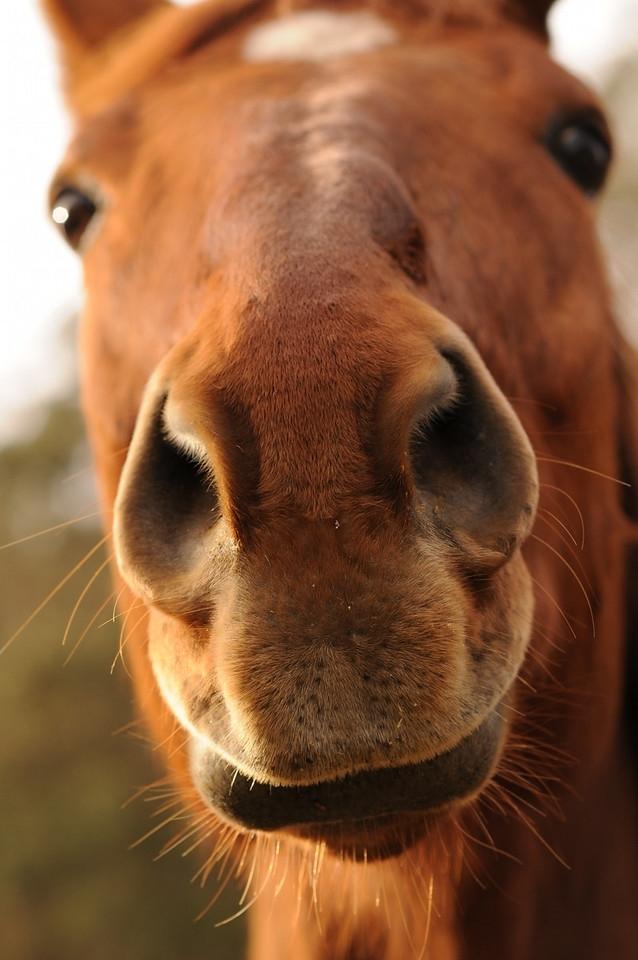
Some goals for the future include securing enough funding to offer Square Peg employees a salary, which would allow them to work for the organization full-time as a career rather than a stop on the way to college or a ‘real job.’ Dunlap says she would also like to secure additional access to trails to allow for more interactional riding.
However, the most important goal of all is that the needs of the community continue to be met from year to year, and that Square Peg remains firmly in the center of that success.
“Horses are social animals; humans are social animals,” Dunlap said. “I have a very strong belief that one of the most toxic and deadly ailments on the planet is 100% treatable by anyone and that’s loneliness. Loneliness is deadly. Any of us have the ability to treat loneliness for and with somebody else.
“The same is true of horses. When we can satisfy their social needs, they’re so much easier to work with because you’re not seeing all these problem behaviors and meltdowns. Thoroughbreds are an interesting allegory for autism.” -- By Corrie McCrosky